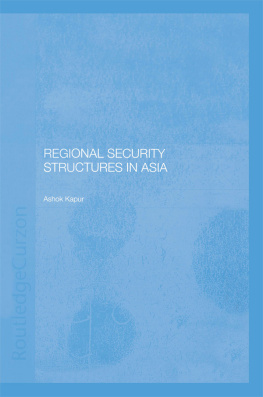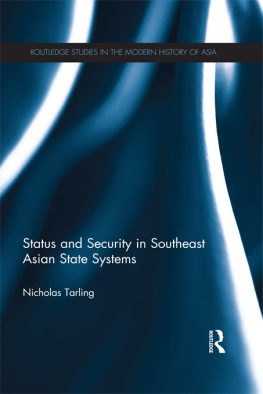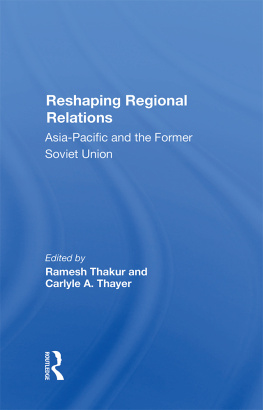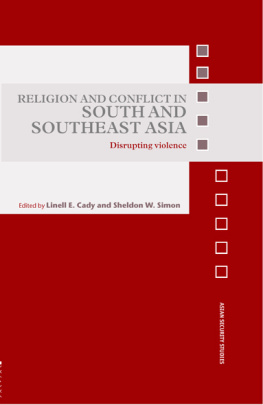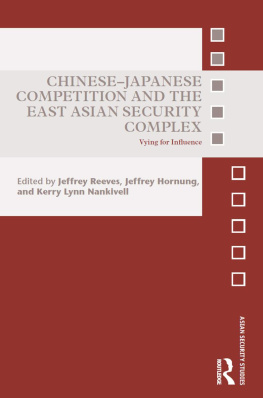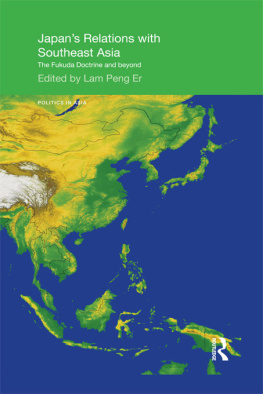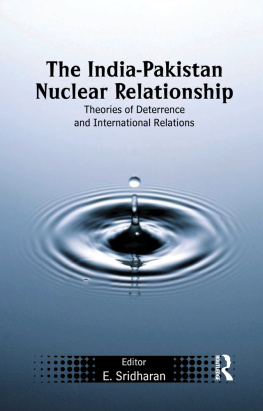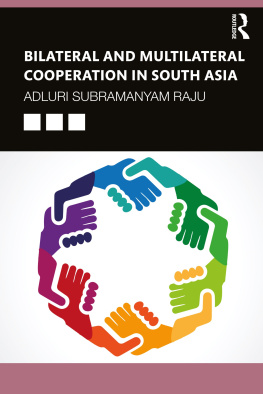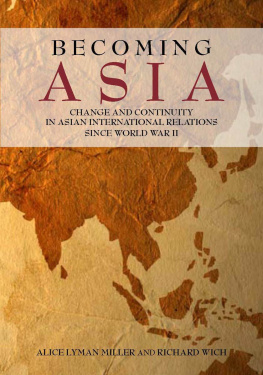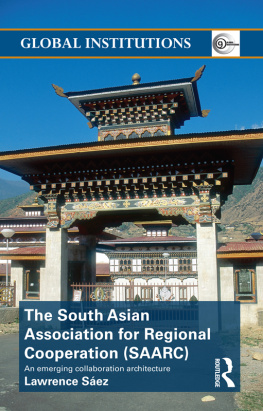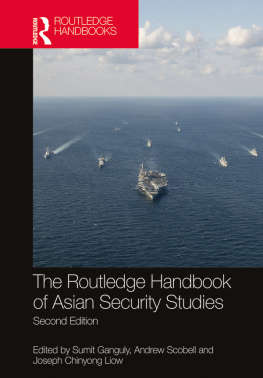Regional Security Structures in Asia
This book argues that explanations of international relations in Asia in the post-Second World War period have relied too much on the Cold War as a key explanatory factor, and have not given enough emphasis to the useful concepts of regional power formation, conflict formation and conflict resolution. The author outlines these concepts and goes on to elaborate them, and to apply them to three key Asian regions North East, South East and South Asia discussing practical strategic issues in a historical perspective and arguing that the concepts, and other concepts which he discusses, are extremely helpful in making sense of the complex pattern of international relations in Asia.
Ashok Kapur discusses the work of a wide range of scholars, considers factors including economic interdependence, competitive nationalism and sub-nationalism, national states and the impact of their domestic agendas, and links to global superpowers. He explores a wide variety of concepts, including, besides those mentioned above, balance of power, bipolarity and multipolarity, and global hegemony and regional hegemony, to establish a coherent system of international relations which explains developments in Asia.
Ashok Kapur is Professor and Chair of Political Science at the University of Waterloo, Ontario. He is the author of several books on South Asian nuclear policies, South Asian international relations, most recently, Pokhran and Beyond: Indian Nuclear Behavior (2001) and India and the United States in a Changing World (co-editor, 2002).
First published 2003 by RoutledgeCurzon
Published 2013 by Routledge
Simultaneously published in the USA and Canada
by Routledge
2 Park Square, Milton Park, Abingdon, Oxon OX14 4RN
711 Third Avenue, New York, NY 10017
Routledge is an imprint of the Taylor & Francis Group, an informa business
2003 Ashok Kapur
Typeset in Times by M Rules
All rights reserved. No part of this book may be reprinted or reproduced or utilized in any form or by any electronic, mechanical, or other means, now known or hereafter invented, including photocopying and recording, or in any information storage or retrieval system, without permission in writing from the publishers.
The publishers makes no representation, express or implied, with regard to the accuracy of the information contained in this book and cannot accept any legal responsibility or liability for any errors or omissions that may be made.
British Library Cataloguing in Publication Data
A catalogue record for this book is available from the British Library
Library of Congress Cataloging in Publication Data
A catalog record for this book has been requested
ISBN 0-7007-1616-5
This study was made possible by the support of the Social Sciences and Humanities Research Council of Canada. This award enabled me to do the fieldwork in different sites in Asia-Pacific.
A number of individuals and organizations facilitated the preparation of this work. The Canadian Department of Foreign Affairs was most helpful in organizing my interviews with academic and official practitioners in Tokyo, Seoul, Taipei and Singapore, and officials in the Ottawa headquarters shared their time and expertise on a variety of policy questions. In Canberra, Mrs Tonia Shand, then Chief of Protocol, Department of Foreign Affairs, and Professor Rick Shand, Australian National University were gracious hosts and opened many doors to high level experts in the Department. In New Delhi, Professor M.L. Sondhi, was most helpful in arranging meetings with knowledgeable experts, and as always, the members of the Indian Ministry of External Affairs provided valuable background information. These individuals and organizations carry no responsibility for the contents of this book. That is solely mine.
Three individuals helped me with the timely completion of this book. Michael Alandu was a most capable research assistant, and Joan Hatton cheerfully and effectively deciphered my handwritten notes and prepared the various drafts of this work under considerable pressure of time. Marta Nestaiko skilfully prepared the maps.
Finally, I thank Peter Sowden, commissioning editor at RoutledgeCurzon, for encouraging me to write on Asia-Pacific. I am grateful also to the anonymous reviewer for the helpful comments and suggestions.
Introduction
This book argues that explanations of international relations in Asia in the post-Second World War period have relied too much on the Cold War and bipolarity as key explanatory factors and have not given enough emphasis to the useful concepts of regional power formation, conflict formation and conflict resolution. The book outlines these concepts, which were originally formulated by Vayrynen and goes on to elaborate them, and to apply them to three key Asian regions North East, South East and South Asia arguing that the concepts are extremely helpful in making sense of the complex pattern of international relations in Asia. I discuss the work of a wide range of scholars, consider factors including economic globalization, competitive nationalism and sub-nationalism, national states and the impact of their domestic agendas, and links to global superpowers, and explore a wide variety of concepts, including balance of power, bipolarity and multipolarity, and global hegemony and regional hegemony, to establish a coherent system of international relations which explains developments in Asia.
With a few exceptions, North American studies of South Asian (1947-present) and North Asian (1945-present) international relations are inaccurate and misleading. They do not explain the pattern of change that shows regional power formation, conflict formation and conflict resolution powerful concepts, in international relations in these regions in a historical perspective. A major reason for the errors of commission and omission in scholarly work lies in the negative influence of the Cold War on scholarship. Gunnar Myrdal, a world-renowned scholar in developmental economics and international politics makes the point that the scholarly profession has made an accommodation with political realism and the narrow strategic interests of a state or a bloc of states. To quote him:
the most perceptible political influence on the research approach in Western countries to the problems of South Asian countries is the predominant role given to considerations of national power and international power relations. In a world full of perils to national security and survival, this tendency is understandable; it is often asserted to be a more realistic direction of social research. The implication is, however,
Myrdal cites the American novelist Robert Wright as follows:
I state that emotion here precedes the idea, that attitudes select the kind of ideas in question We are human; we are the slaves of our assumptions, of time and circumstances, we are the victims of our passions and illusions, and our critics can ask of us Have you taken your passions, your illusions, your time, and your circumstances into account? This is what I am attempting to do.
A social scientist should not be less humble and assume that he is purely factual and objective. He cannot, in any case, escape valuations, as he needs explicit, or implicit, value premises even to ascertain the facts.
From Myrdal and Wright, I propose to argue that (i) American scholarship in particular, is biased by US national interests and national security considerations; (ii) due diligence is needed on our part in making scholarly biases transparent; and finally (iii) the search for theory requires the following research procedure.

